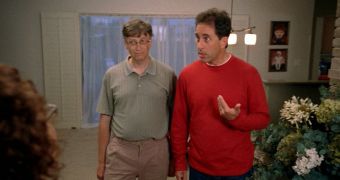At the start of September, Microsoft debuted a $300 million Windows marketing campaign designed by advertising agency Crispin, Porter + Bogusky. The first Apple's “Get a Mac” killer video ad went live featuring Bill Gates and Jerry Seinfeld and despite Microsoft’s claims that it was just an icebreaker meant to warm up consumers for the real thing, it generated a wave of criticism. This is why David Webster, general manager of brand and marketing strategy at Microsoft, and the father of the Windows Codename Mojave Experiment came out to answer two common questions raised by the new Windows ads, namely: “Do you really think these ads will make people want to buy Windows Vista? [and] Are you getting the reaction you expected/wanted?”
Webster's answer to the first query was affirmative, emphasizing the fact that the Gates and Seinfeld ads are nothing more than icebreakers. “That's exactly what they are. Icebreakers. Not the whole campaign. Not even the main part of the campaign. Just the beginning of the campaign. Just as somebody might tell a joke to lighten up a room or get somebody's attention before changing gears, these first ads were designed to tap people on the shoulder and say 'Excuse me. We're back and we'd love a few moments of your time',” Webster stated.
Microsoft does not expect consumers to crowd to retail outlets to buy new Windows-based laptops, or for the Vista perception to change because of the performances delivered by Gates and Seinfeld. The role of the new campaign, however, is to talk Windows, beyond the PC, and certainly not just Windows Vista.
"Answering question #2 is even easier. Yes,” Webster added. “When you set out to create advertising, the thing that keeps you up at night is not 'Will some people not get it or like it?' Rather its 'Will anyone pay any attention and notice'? I think we can safely check that box. Oscar Wilde's quote on the subject may be overused, but it's good to keep in mind when thinking about marketing products that can get taken for granted in today's crowded media landscape: 'The only thing worse than being talked about is not being talked about'".

 14 DAY TRIAL //
14 DAY TRIAL //